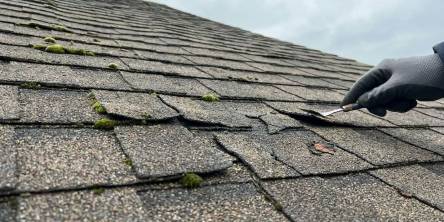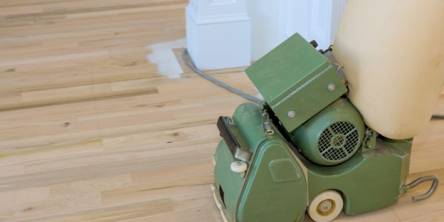How Long Does a Whole House Generator Last? 10 Tips for Maintenance

Many homeowners find a whole house generator invaluable for ensuring continuous power during outages. Understanding the longevity of these units and how to maintain them can significantly enhance their lifespan and performance.
Prospective and current owners alike commonly ask, 'How long does a whole-house generator last?' This article will explore the factors that influence the lifespan of these generators and provide practical tips for their maintenance.
Lifespan of a whole house generator
The lifespan of a whole house generator typically ranges from 15 to 30 years. However, this duration can vary widely based on several factors, including the quality of the unit, how often it's used, and how well it is maintained. For instance, generators used frequently as a primary power source in areas with frequent power outages may have a shorter lifespan than those used occasionally.
Factors affecting longevity
Several key factors influence the longevity of a whole house generator, including the following:
Quality and type of generator
Building quality and brand reputation can greatly impact a generator's lifespan. Moreover, different types of generators (such as diesel, natural gas, or propane) may have varying lifespans due to their inherent mechanical differences and fuel efficiency.
Usage
The frequency and intensity of use significantly affect a generator's lifespan. Generators used more frequently, especially those that serve as primary energy sources during frequent outages, tend to wear out faster than those used sparingly.
Maintenance
Regular and proper maintenance is perhaps the most critical factor in extending a generator's lifespan. This includes routine checks, oil changes, filter replacement, and ensuring that all parts are functioning correctly.
Installation
Proper installation by qualified professionals ensures that the generator operates under optimal conditions, which can prevent undue stress and potential damage.
Environment
Environmental factors also play a significant role. Generators in areas with extreme weather conditions, high humidity, or salt-air exposure are more susceptible to wear and corrosion, which can shorten their useful life.
Storage and handling
How the generator is stored when not in use and handled during operation can also impact its durability. Using covers, placing them on a clean, dry surface, and following manufacturer guidelines for storage can help prolong their life.
By understanding and managing these factors, homeowners can ensure that their whole house generator remains a reliable and adequate power source for many years.
10 tips for maintaining your whole house generator
Maintaining a whole house generator involves a combination of regular check-ups, proper usage, and preventative measures. Here are some of the best tips to help ensure that your generator remains in good working condition and prolongs its lifespan:
Regular professional maintenance
Schedule annual or semi-annual maintenance checks with a certified technician. These professionals can perform comprehensive inspections and services such as changing the oil, replacing air and fuel filters, and checking the battery and spark plugs.
Routine self-inspections
Between professional check-ups, regularly inspect the generator yourself. Look for any signs of wear, leaks, or corrosion. Check hoses, belts, and connections for tightness and overall condition.
Run the generator regularly
Even if there's no power outage, running your generator periodically is essential. Most manufacturers recommend running it for about 30 minutes at least once a month to charge the battery, lubricate the engine, and ensure it's ready for use when needed.
Use fresh fuel with a stabilizer
Always use fresh fuel and add a stabilizer to it to prevent oxidation and deposit formation. This is particularly important for gasoline-powered generators, as gasoline can degrade over time.
Keep it clean
Ensure the exterior of the generator and its components are clean and free from debris. Dirt and debris can clog vents and affect the unit's performance.
Ensure proper ventilation
Continuously operate your generator in a well-ventilated area to avoid overheating and ensure adequate airflow.
Protect from the elements
If your generator is installed outdoors, protect it from the elements with a generator cover or by housing it in an enclosure. This can prevent rust and weather-related damage.
Follow the manufacturer's instructions
Adhere closely to the manufacturer's operation, maintenance, and storage guidelines. For replacements and repairs, use only recommended parts and fluids.
Prepare for inactivity
If you know the generator won't be used for an extended period, prepare it for storage. This may involve draining the fuel, changing the oil, and disconnecting the battery.
Keep a maintenance log
Document all maintenance activities, repairs, and service checks. This record can help troubleshoot future problems and is also essential for warranty support.
By following these tips, you can help ensure that your whole house generator remains reliable, efficient, and ready to provide power whenever needed.
Conclusion
Following these tips ensures that your whole house generator remains a reliable energy source for many years. Regular maintenance prolongs the unit's life and enhances its efficiency and safety. If you're considering a new installation or need advice on maintaining an existing unit, consult a professional specializing in residential generators. They can provide personalized advice tailored to your specific needs and conditions.
Similar Articles
There's a particular feeling that comes with stepping into your backyard on a Saturday morning and actually wanting to be there.
Bathrooms are among the most frequently used spaces in any home, yet they’re often overlooked when it comes to meaningful design.
Luxury interiors are not built through clutter. They come through calm. They come through balance. They come through the quiet presence of well-chosen materials.
Discover modern wallpaper styles that elevate any room. Explore 2025–2026 trends, peel-and-stick options, textures, accent walls, and tips for choosing the right look.
Energy efficiency has become a top priority for homeowners as energy costs rise and comfort expectations increase. While many people focus on windows, insulation, or appliances, the roof plays a major role in regulating indoor temperatures.
Refresh your driveway without replacing it. Discover budget-friendly cleaning, repair, resurfacing, and design ideas that boost curb appeal and durability.
We all know that roofs don’t last forever, but how do you know when it's really time to replace yours? After all, your roof is out of sight, out of mind, right?
As winter settles in and temperatures drop, families across the country brace themselves for the inevitable spike in energy bills.
Wooden floors have long been the subject of admiration for their classic beauty, natural warmth, and strength.









